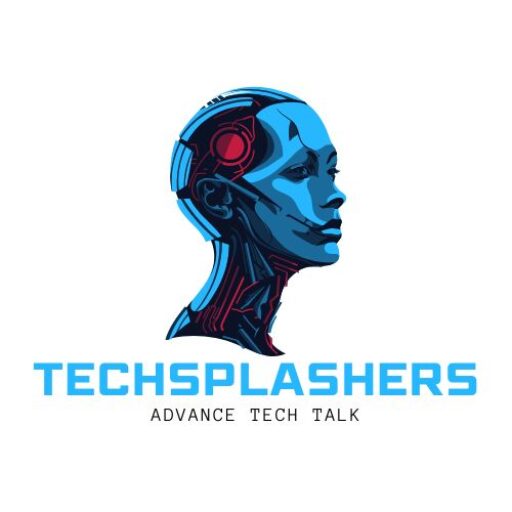With open source databases, it’s possible to store and organize essential information related to software. When your database is open source, your users will be able to build a system that takes their needs into account. It’s possible to modify source code to meet the needs of users. It’s easy to share, and it won’t cost a thing.
With these databases, it makes it easier to analyze information from numerous applications without spending too much. Because IoT (Internet of Things) and social media have surged in popularity, there is a great deal of data that must be gathered and analyzed. After all, analysis is what gives data its value. It’s important to look for insights and patterns that can be useful to you. Traditional databases can’t always handle the amount of data that needs to be analyzed. Open-source software is an affordable and flexible solution. It’s changed the way people use database management systems.
It can take a long time to find database software and management tools, and the process can be costly as well. Many tools offer far more than the typical user needs. In many cases, these tools will have features that will go unused. Luckily, on this list of open source options, you’ll find a wide range of solutions that should work for you.
In some cases, these options come from vendors that hope to persuade you to purchase the product that they are selling. In other cases, solutions come from the development community. Many people want data management to be democratized.
PostgreSQL:
This relational database is open-source, free, and is not owned by an organization. It offers a wide array of useful features, such as data importing, exporting, and indexing. User configuration and version control settings allow you to customize your experience. It can be used to build NoSQL databases via Python or JSON.
This is a particularly effective solution for businesses within the financial industry. Because it is ACID compliant, it can be used to process online transactions. PostgreSQL is used in many other industries as well, including scientific research and manufacturing.
Based on benchmark testing, the latest version of PostgreSQL is significantly improved. Using high-performing tools can increase productivity, which can lead to an increase in profits as well. It’s also possible to use PostgreSQL alongside software from third parties, such as EDB Postgres to enhance the speed & efficiency of the database. If you are currently using PostgreSQL, you’ll want to update to the latest version as soon as possible so that you can enjoy these improvements.
MongoDB:
This database can store high volumes of data and is designed around documents. This open-source NoSQL database is highly flexible. The database is written in C++ and stores data via chunks. Related data is sorted together.
This is a flexible alternative to many other relational databases. If you need to add fields or make other changes, you’ll be able to do so without causing any major issues with the application. Since this database is easy for new users to learn, it’s a very popular option.
It can be used for larger data products, including content and configuration management, real-time analytics, cataloging products for e-commerce businesses, data logging and caching social networking, and many other projects.
SQ Lite:
This relational database management system can be used for database administration, setup, and essential source. The name contains the word “light” because this system is designed to be lightweight. It’s located within the C programming library.
Because this system is self-contained, it can process data of all types. It doesn’t need to be installed before it can be connected with the app. Instead, it will integrate with your applications.
It’s a great option for teams and businesses that are looking for a solution and don’t need a lot of extra features. It’s well suited to development and testing projects on a smaller scale.
Apache Cassandra:
This NoSQL database management system is capable of handling significant amounts of structured data while avoiding failure points. It is free and open-source. If you need a solution that can scale and meets your availability needs, but you also want excellent performance, this is a terrific option.
It can handle heavier write loads without as many reads. It’s a great choice for e-commerce and entertainment sites as well as messaging systems.
Airtable:
Airtable database software, which is cloud-based, offers a wide range of features that aren’t always found in open-source database management solutions. From data tables to file sharing functionality to the ability to store files and track documents, these features make Airtable an option worth considering.
With these tools, you can focus on task management using calendars, spreadsheets, and Kanbad dashboard.
If you opt for the free plan, you’ll have 2 gigabytes of file attachments, two weeks of snapshot revision and history, a capacity of 1,200 records, and unlimited data tables.
This is an excellent solution for teams on the smaller side that want to take advantage of these features. You don’t need programming skills to get a lot out of Airtable. When you use this software, modifying, adding, and deleting data is simple.
Sonadier:
This application is cloud-based and can be used to build forms and databases. Because it utilizes a drag-and-drop interface, building and editing forms is a simple process. It offers many high-value features, including file management, data versioning, the ability to import and access data, and user permissions for data access.
If you opt for the free plan, you’ll be able to create and store as many as 10,000 files and forms. The free plan supports up to 5 users. If you want to provide access to more than 5 users, or if you want access to features like custom groups and domains, single-sign-on, and version history, you will have the option of upgrading.
This is an effective solution for smaller and medium-sized businesses. This is a simple and highly effective tool for building databases and web forms.
Conclusion
When deciding on an open-source database, you’ll need to take the unique needs of your business into account. The size of your system needs to be considered. If your database is smaller, or if it has more limited use, a lightweight solution will be your best option. You won’t have to spend as much time on debugging, and it will be much easier to implement.
If your business is still growing, or if you have a larger system, it’s best to opt for a solution that’s a little more complex, such as PostgreSQL. Although this will take more time upfront, it could save time in the long run. As your business expands, your databases won’t have to be re-coded.



![Top 10 M4uFree Movie Alternatives | M4uFreeMovie in 2022 [Updated]](https://www.techsplashers.com/wp-content/uploads/2022/03/Top-10-M4uFree-Movie-Alternatives-M4uFreeMovie-in-2022-Updated.jpg)








Leave a Reply